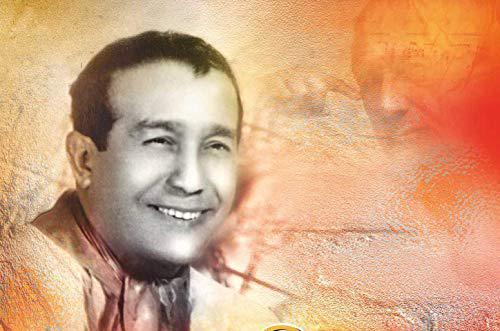Miguel Matamoros and the ingenuity of tradition

The son of Cuba finds in Miguel Matamoros an archetypal representative par excellence. Tradition and identity alternate in the creations of a man who, on his 31st birthday, May 8, 1925, would establish the Trío Matamoros as one of the most distinguished hallmarks of the most popular and prominent Cuban musical ensemble, the Son.
The revelation, made in his home when he met with Rafael Cueto and Siro Rodríguez, sparked the beginning of a group with Miguel at its core, immortalizing, among other compositions, «Lágrimas Negras, «, «El que siembra maíz», «El son de la loma», «El paralítico», «La mujer de Antonio», «Mariposita de primavera», «La santiaguera», «El trío y el ciclón» and «Regálame el ticket. «
«Each of these songs has a different inspiration, but they are all personal experiences, chronicles of everyday life, artistic recreations that have been transformed into songs by Miguel Matamoros’ creativity,» says Dominican researcher Dagoberto Ortiz.
It was in the Dominican Republic that he composed»Lágrimas Negras,«the most popular bolero of the Cuban trio. In Miguel’s own words: «I did not compose it for myself, no sir, but for a neighbor who always came to the house complaining that her husband had left her for no reason.»
This style of writing was consistent throughout his works. The most intricate fictions stand naked before the resolute garb of reality, and with it Miguel conversed with ease and casualness in a representation fixed for all time.
According to the musicologist José Reyes Fortún, within the spectrum of Cuban music, Matamoros is a very special case that not only accepts the son’s contributions to other genres, variants and developed styles, but also incorporates other valuable sources of Cuban music, including the rumba of the sun, music from the popular theater, ballroom dance and street conga.
Students of the son find in his figure an indispensable reference point for studying the history and development of this genre. Among his contributions, beyond those recognized by historians, is the conception of a small vocal-instrumental format, based on the rhythm of the eastern son and with a trova accent, which has adorned the performances of the trio and brought them international recognition.
«With Miguel Matamoros, the ‘trova sonera‘ configures a sensitive musical intuition, marked by an accuracy of stylistic approaches and an interpretive capacity capable of moving not only the national musical stage, but also major foreign artistic venues at all times,» adds Fortún.
With absolute devotion, he lived the bohemian life on stage. His oeuvre includes hundreds of songs, which was unusual at the time. Beyond the number, and given his performance, it is more accurate to measure the stories behind the songs and their consequent impact.
Return to Reyes Fortún:
«As something very personal, his artistic drive is recognized for proposing a goal not always achieved by many of his contemporaries: freshness.
«The passage of time has not diminished the joy of living in a healthy and optimistic way in his work, a factor that has contributed significantly to the transcendence of his compositions.
«The figure of Miguel Matamoros embodies not only a close artistic harmony and a strong temperament imbued with the Cuban essence. In him, timbral, melodic and rhythmic inspirations come together, drawn from the very roots of the country’s eastern music, especially son. For all these reasons, his musical work exudes elegance and a special stamp, where grace, elegance and typicality forge the purest Cuban flavor, enveloped in a serious lyrical-dance character.»
Praise is not enough to fully appreciate a performer who knew how to portray an era with universal signs to defy the sacramental ignominy of time. However, the just recognition of a personality of his stature, capable of lifting Cuban music to new heights without disregarding tradition, does not go unnoticed either.
Photo: La Demajagua



